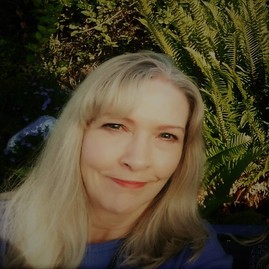 About the Author: Kate Olson, CPC, CHt, is a Life Transformation Coach, Clinical Hypnotherapist, NLP Practitioner & Reiki Master with a practice in the Seattle area, Northern Lights Life Coaching. She offers workshops & classes, as well as, individual and group life coaching. Her emphasis is on assisting clients in finding path, purpose and peace. She focuses on integration of mind, body and spirit wellness. It is her mission to help clients find joy through connection, creative expression and change facilitation. She is passionate about creativity, travel, the environment, personal growth and living with joyful purpose. She has a second wellness-related business offering Salt Therapy, Salt Works Saltariums. Salt Therapy offers an all natural treatment solution for respiratory and skin problems. How Does Coaching differ from Counseling or Psychotherapy? Shifts and changes in life are inevitable. The universe was created to change. Life is a process of constant flux and flow. However, often we become stuck along the way and we are unsure of which way to go next. Before you know it, a loss or death, the birth of a child, a job opportunity or a change in perspective comes along and your resistance to needed changes kicks in. Coaching is the process of defining what areas of your life you feel anchored down to or stuck in and how to take behavioral steps towards change, direction and action. When you make the decision to make changes in your life it is both motivating and challenging. To committment that you want to create your life instead of reacting to events, is to take a huge step towards happiness. A Life Coach helps you design your future rather than recover from your past. In a structured process, coaching focuses you on achieving change and learning the important lesson, that whatever we put our focus on, defines our experience. Practicing disciplined conscious awareness, clients are urged to notice where they have been habitually putting their energy and learn how to "loosen from the anchor" so change can occur. Coaching focuses on possibilities to create a compelling vision for your future life based on self-acceptance and responsibility. Rather than focusing on general insight, the past, giving a medical diagnosis or personality change, coaching shows you how to define yourself in the present though the patterns of where you put your energy in thoughts, emotions and behavior. A Coach provides someone for you to be accountable to while you pursue changing these patterns. Unlike therapy, coaching emphasizes changing your performance vs. healing or simply increasing awareness. By motivating you with multiple strategies to foster change and remain consistent in your effort, your coach will be your cheerleader, guide and your support while you adjust your daily behaviors and move toward your goals. What is Life Coaching? Life Coaching is a solution based approach to guiding a client to find the best resolution in achieving their goals or transitioning from one life stage or status to another. It is meant to be short term and focused on results, rather than processes. There are many different types of coaches who focus on different niche areas, use different caoching systems, strategies and healing modalities and they have different levels of training, certification and personal skills and characteristics. As a Certified Life Transformation Coach and Registered Clinical Hypnotherapist, Certified NLP (Neuro-lingics Programming) Practitioner and Reiki Master, I am able to use various tools and exercises to help my clients progress more quickly through the cognitive processes needed to achieve change. Neurolinguistics (NLP), Hypnosis and the Ancient Eastern Art of Reiki or Energy Healing are powerful modalities that can be very useful, as well as, traditional cognitive therapy, emotive processes and intuitive guidance. I also use EFT or Emotional Freedom Technique in my practice, which is a combination of accupressure and energy work that has been found to be very healing in the release of trauma, anxiety and pain managemnet. Life coaching is well-suited to helping clients through periods of transition and facilitating the processes that motivate forward movement. It is good for dealing with fears that are blocking progress and hindering functioning. Phobias can be dealt with more quickly and easily than with cognitive therapy or behavior modification and faster than most people would guess. Coaching with the tools of hypnosis and NLP guides the client to use the power of their own mind to their best advantage and to let go of limiting and unnecessary or dysfunctional behaviors, beliefs or traumas. Bad habits can be eliminated and replaced with good or more functional behaviors. Guiding the client to manage stress, pain and their own thoughts and to better focus on their positive goals, aspirations and dreams is part of the Dreamsculpting process & techniques that can lead to life changing transformation and desired outcomes. Whether you want to find your path, purpose or peace, it can be reached more quickly with the guidance of a life coach. You are definitely more powerful than you know and a coach can help you find that "Unlimited Power" within! Most people want to feel happiness or joy in their life. That is possible for us all; -- sometimes a little guidance can feel like magic in helping us to get to that place inside of ourselves that will lead to those feelings. Passion, creativity and self-expression are intricate parts of finding that authentic you and the balance and harmony that is optimal in achieving your potential. Who can benefit from coaching? The answer to that question is anyone who has a need to change or goals and dreams that they are working toward! While it is true that you can probably do whatever you could do with a coach on your own and a coach may tell you or guide you toward things you already know on some level (all the information is out there), you will reach your goal faster and more easily with the help of a good coach and may be more inclined to exceed your expectations. What would the Seahawks be without Pete Carroll? While that question cannot be answered definitively, they would probably be lots of talent and potential lacking some of their current direction and success. There are all kinds of coaches and they are amazing resources and usually individuals that love helping others achieve their goals. I strongly believe in reaching out for help in my own life and have done so when needed. Most recently, I have reached out for help from a speaking coach to help me become a more competent and less fearful speaker. It is not necessary to reinvent the wheel every time we face a challenge beyond our current expereince level. Almost every situation we will ever face in life has been successfully dealt with by someone. It only makes sense to reach out when we come to a place in life where we are stuck and don't know where to go. Having as many options as possible can only enhance the odds of succeeding. How do you find a good coach? What should you look for in a coach? As with any other service professional finding the right match for you personally can make all the difference in your results. It is important to choose carefully and know what to look for. Coaching is a relatively new field and there are many different niches, systems of coaching and credential levels to consider. Before we get to those, the very most important qualification for a Life Coach is probably some expereince with life and dealing with it to reach a level of relative success for themselves. After that, you should look for a coach you feel comfortable with and communicate well with. They should understand and respect your learning and communication style and be able and willing to communicate with you on your level. You should feel trust in them and respected by them. They should be a good listener with active listening skills, who will ask you follow up questions to understand exactly where you are coming from. A good coach should have the following qualiaties:
While having good credentials and training in systems, modalities and different coaching strategies is, of course, important and finding someone with specific expereince in the areas you are seeking help with is definitely important, the qualities the coach possesses as a person and how they match up with you, is probably most important. Don't forget to listen to your intuition and that gut feeling you have, as they are usually right. The bottom line is that finding the right coach can make a big difference in your life and help you reach and exceed your greatest aspirations. You deserve the the best, so it is definitely worthwhile to find that great coach who will inspire you to be the "best version" of you and reach your highest aspirations.
4 Comments
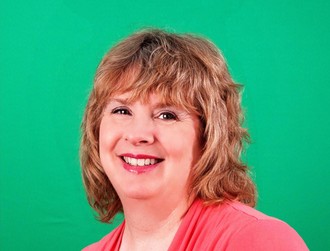 About the Author: Shelley Abrams spent close to 25 years as a corporate technical writer before branching out on her own as a freelancer in 2010. She loves writing and doing research and enjoys the diversity being a freelancer offers. She has contributed to blogs on spirituality, personal development, mindfulness, and health and wellness. She has written and maintained philosophical and spiritually based content for a paid membership site. She is currently co-authoring a non-fiction book that offers a unique spin on history and geology. She also does analysis and report writing for a marketing research firm. She has an MBA, as well as, a certificate in non-fiction writing. When she’s not writing, she likes being out in nature or just reflecting in the quiet. She finds history, geography, philosophy and meta-physics fascinating. She also loves traveling, meeting new people and experiencing different cultures. To learn more about Ms. Abrams’ writing experiences, visit her website at www.write2spec.com. When you think of spring cleaning, what comes to mind? Deep-cleaning the house? Throwing things away? Simplicity? Happiness? It’s an annual ritual many of us go through. We almost always do it for practical purposes. As we accumulate more stuff we need to put it somewhere, so we get rid of some stuff we no longer use. We rarely do it for altruistic reasons, even if we give our things to charity. And, we rarely do it for its intrinsic value. But maybe we should rethink that! In today’s society we strive to have it all. We work for it, we shop for it, we dream about it and we beat ourselves up when we don’t have it. We feel un-wealthy, unworthy and definitely NOT satisfied or happy! Why? Because we have been programmed throughout our lives to think that an accumulation of things is what constitutes happiness. And we use this accumulation of materiality to define who we are. So if materiality isn’t the answer to happiness, what is? Let me answer by telling you a personal story. A few years ago I was visiting friends and it struck me how simplistically they lived compared to me. They made more money, had fewer possessions and seemed happier. I had so much more - well, you know, stuff! And I certainly didn’t feel truly happy or satisfied. I had fallen into the cultural trap of always wanting more, and I bought it, racking up debt while running out of room to store it. It was at that moment I realized how much happier I was when I was younger and had less stuff. There was less stress, I had fun and if I’m honest with myself, I laughed and smiled more. So, I made a decision. I really don’t need this stuff anymore! That isn’t what life is about. It’s about experiences and finding contentment, inner peace and happiness in or through those experiences. So I embraced spring cleaning year-round. And I embraced doing more of the things I liked to do. Guess what? As I got rid of stuff, shopping only when I needed to, enjoying what I have and not stressing for more, I felt lighter, happier and dare I say it… more carefree! And, the less time I spent pursuing material things and instead focused on doing things that made me feel good about myself and my life, the more I sensed that deep satisfaction everyone seeks. In other words, I simplified my life and am happier because of it! Mihaly Csikszentmihalyi, psychology professor and a leading expert on happiness, calls it “the flow” - doing what makes us feel good on the inside, not what we think makes us look good on the outside. In his 1999, American Psychologist article, “If We Are So Rich, Why Aren’t We Happy”, Csikszentmihalyi highlighted several reasons for feeling unhappy when our day-to-day activities consist mostly in pursuing material things and wealth. One reason was the concept of expectation versus value - the more we get the less satisfied we become. For example, you binge on a box of cookies thinking it will make you feel better, but the more you eat the less you enjoy it. He also explained that the more energy we put into pursuing what we perceive will make us happy instead of what actually makes us happy, the less energetic we feel overall. If we really want to be happy, we need “flow”. In his book “Flow: The Psychology of Optimal Experience”, Csikszentmihalyi suggests three actions we can take to be happier:
In this same book, Csikszentmihalyi sums it up by saying, “happiness is not something that happens. It is not the result of good fortune or random chance. It is not something that money can buy or power command. It does not depend on outside events, but, rather, on how we interpret them. Happiness, in fact, is a condition that must be prepared for, cultivated, and defended privately by each person. People who learn to control inner experience will be able to determine the quality of their lives, which is as close as any of us can come to being happy.” Sri Paramhansa Yogananda espouses similar things in his book “How to be Happy all the Time”. In his book, Yogananda states that while there is material prosperity, people lack inner happiness because they look for it externally rather than internally. He mentions that happiness stems from being in control of your habits and what he calls “appetites” – the “over-demands of your senses”. He says that in order to be happy we shouldn’t be looking for things; instead we need to be content with what we have and in our pursuit of what we want. He also emphasizes simplicity, which he describes as “a quiet path of moderation”. This quote from Yogananda’s book is a good way of understanding happiness as it pertains to simplicity: “Joy is too delicate a flow to bloom in the sooted atmosphere of worldly minds, which crave happiness from money and possessions. Joy wilts too, when people water it inadequately by placing conditions on their happiness, telling themselves, ‘I won’t be really happy until I get that car (or dress, or house, or vacation by the sea)!’ Materialistic people, however frantically they pursue the butterfly of happiness, never succeed in catching it. Were they to possess everything their hearts ever craved, happiness would still elude them.” Now you understand that wanting and pursuing “stuff” does not lead to happiness, but does it mean to be happy we have to have nothing? If pictures of spiritual teachers living in absolute poverty come to mind, that is NOT simplicity and happiness as Yogananda and others define it. It means not buying things you don’t need – those “unnecessary possessions”. It means having enough. It doesn’t mean poverty or other extremes. It means comfortably living your life with, and doing, the things that truly make you happy and letting go of everything else. So what are some ways you can live a more simplistic, happier life? Here are some tips from Yogananda:
Spend time without distraction every day. Don’t use your electronics, don’t watch television, don’t check emails. Instead, spend time meditating, in quiet reflection or observing yourself and others. “Unnecessary possessions are unnecessary burdens. If you have them, you have to take care of them! There is great freedom in the simplicity of living. It is those who have enough but not too much who are the happiest." – Peace Pilgrim. |
Blog By Kate Olson Kate is a Hypnotherapist, NLP Practitioner & Trainer, Reiki Master, Energy Healer, Life Coach and more. To find out more about her or her work, click the links below:
Get Kate's Book & Journal!
Living in Joyful Resilience: A Roadmap for Navigating Life's Ups & Downs & Simple Soul Thoughts : Collecting Moments of Joy www.joyfulkate.com About the Blog After 4 years of featuring at least 1 guest Author a month this blog changed in 2020. I loved featuring the posts of other great people who also believe in mind, body, spirit wellness. I will continue to feature articles submitted to me on this topic that align with my own mission. However, finding & reaching out to others is time consuming and I do it for my radio show, Soul Talks and other groups and projects and so for this blog i will be ramping up my own posts and perspective. posting mostly my own blogs. I will be happy & excited to post articles from those who submit them to me. Archives
April 2022
Categories |
Proudly powered by Weebly


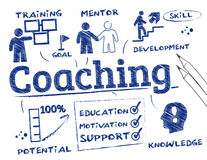


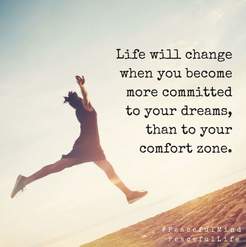
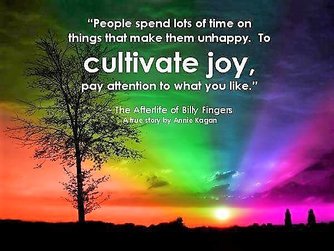
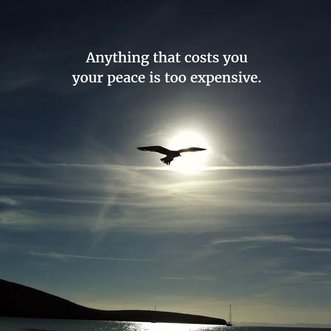

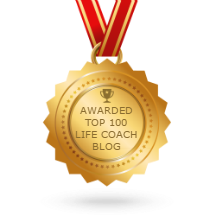
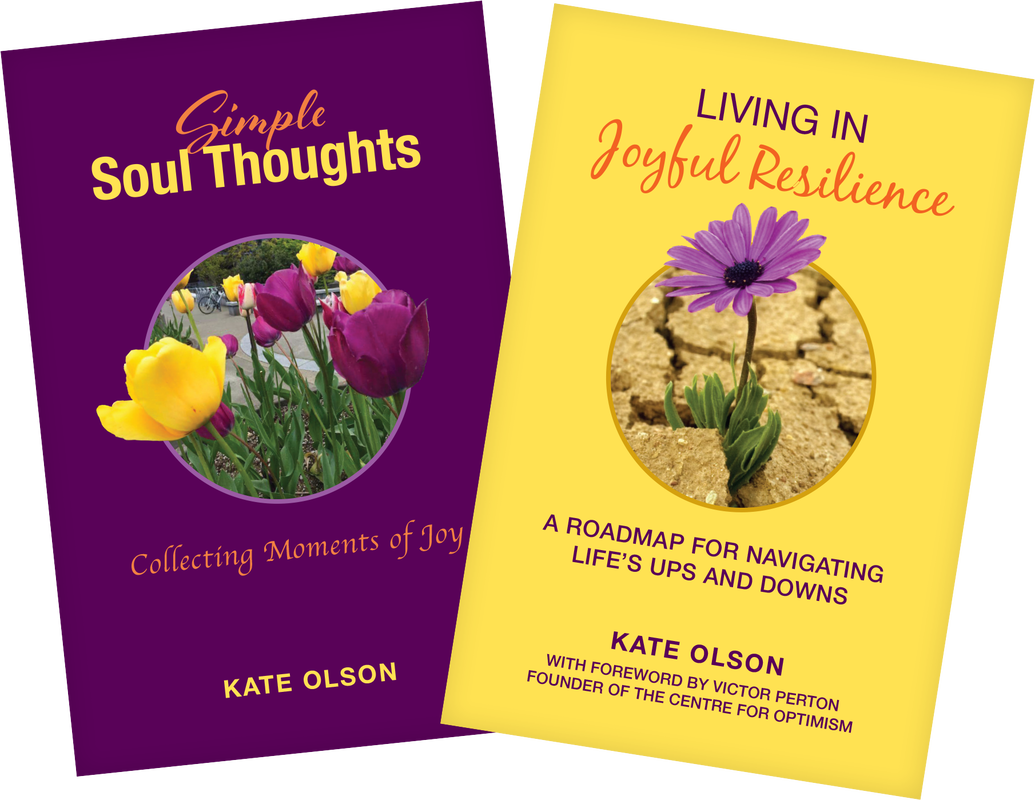
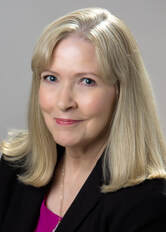
 RSS Feed
RSS Feed